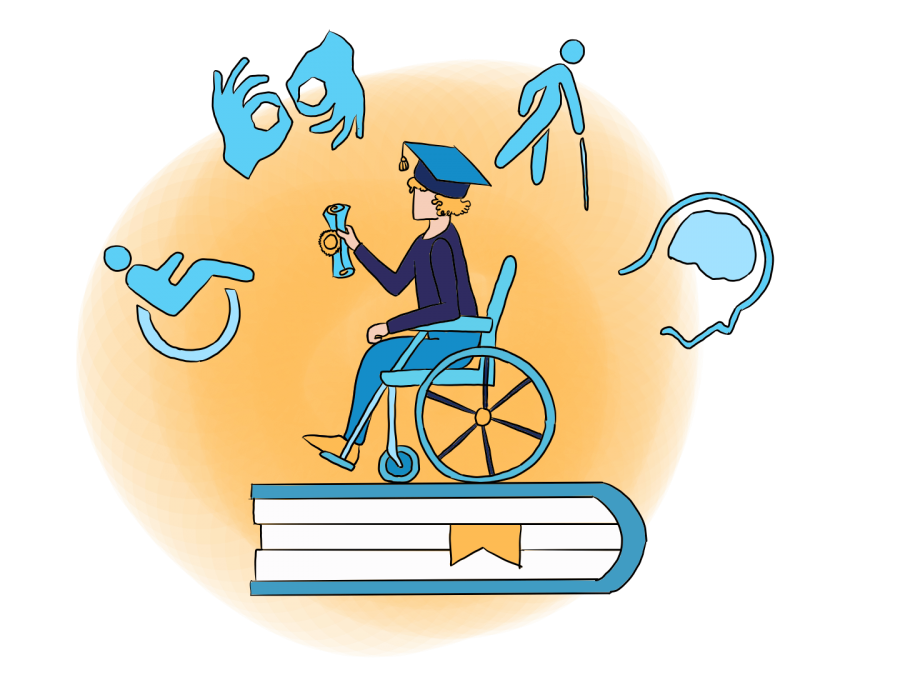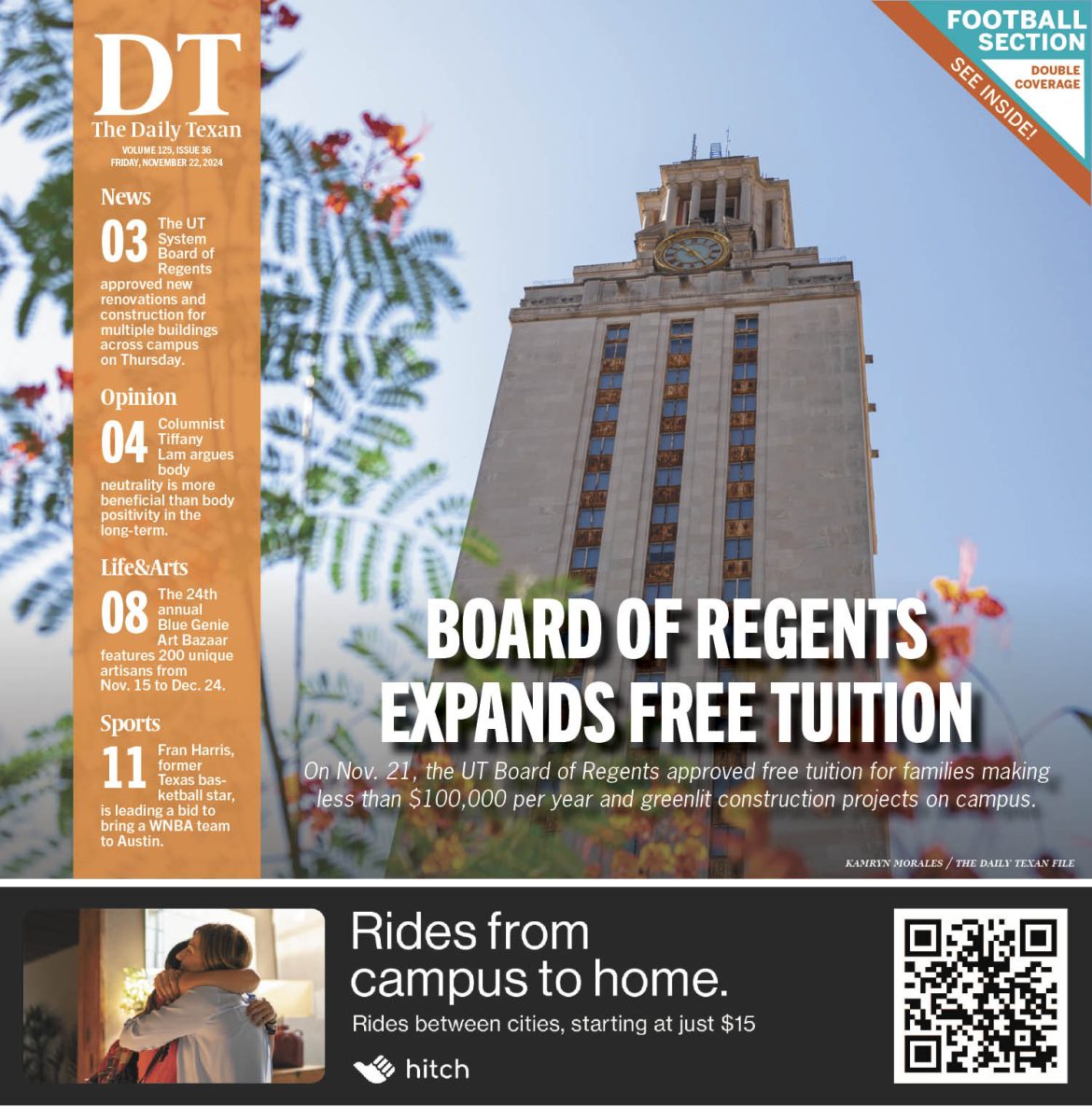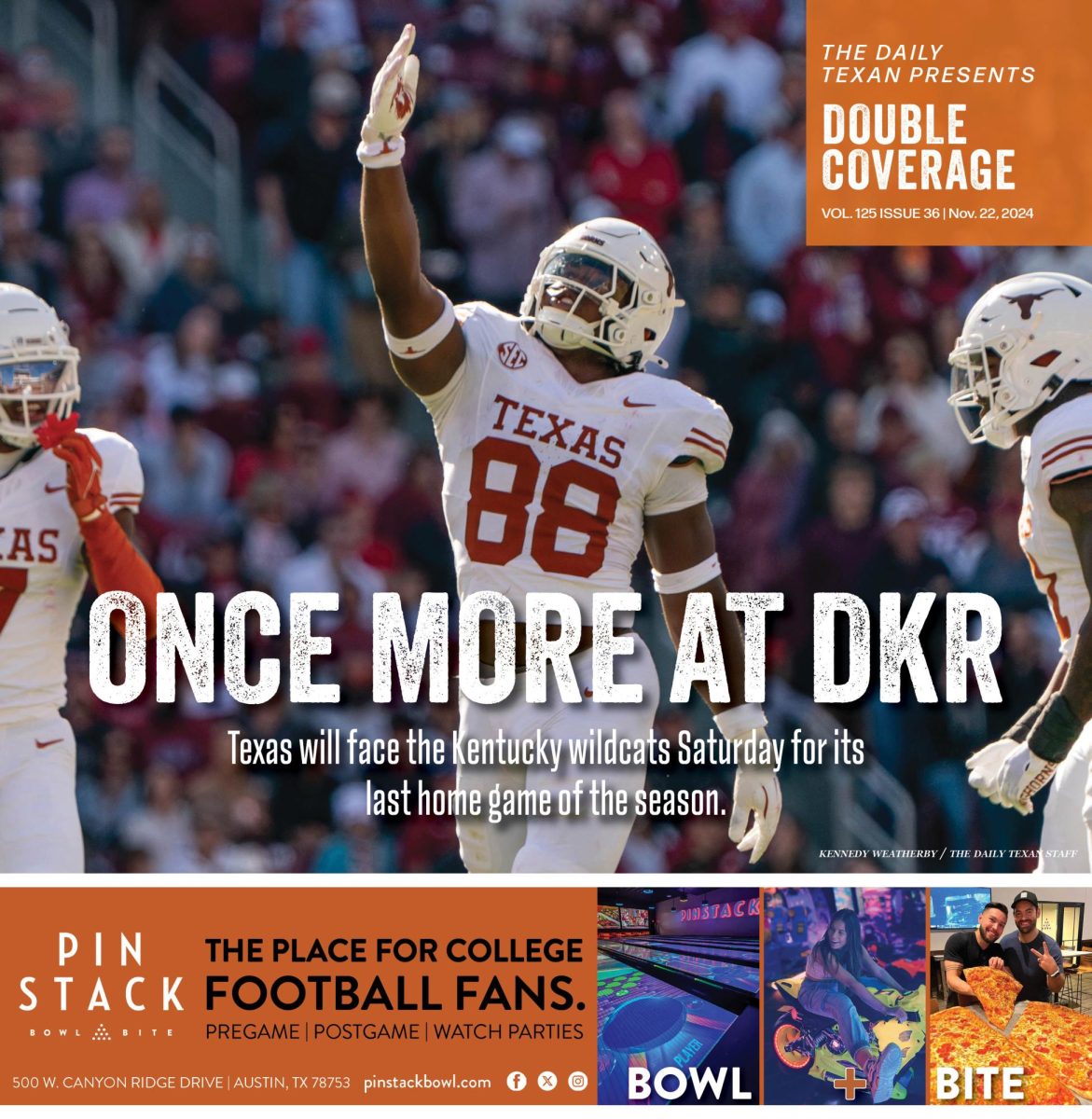UT must be proactive in outreach for disability accommodations
March 9, 2020
Success on campus isn’t simply the result of hard work. Students can’t outwork a lack of resources. For students with disabilities, having proper resources is instrumental in achieving success. The role of Services for Students with Disabilities is providing these students the necessary resources while at UT.
“That involves working with students to determine and put in place academic accommodations for classrooms and exams,” SSD assistant director Emily Shryock said. “It also involves working with faculty and staff to make sure those accommodations are provided for them.”
Through SSD, students can receive testing, attendance, note-taking accommodations and more. But accommodations are not helpful if students aren’t aware of their availability. SSD currently has partnerships throughout UT to inform students of these opportunities, but more work needs to be done to ensure students with disabilities have a fair academic experience at UT.
Shryock said SSD outreach is “an ongoing effort.”
“We want to make sure students are aware of the availability of accommodations while on campus … through orientation and then during the whole time they are at UT,” Shryock said.
SSD works with New Student Services to reach students at UT Orientation. When registering for orientation, students are asked if they need accommodations to participate and provided with information if they do. At orientation, student outreach includes either tabling or open house opportunities.
However, when it comes to bigger presentations at orientation, both representatives from SSD and New Student Services admit that disabilities are not a main part of conversation. Instead, the approach is more subtle. These vague references don’t always work, especially for students who are unsure of what exactly they need.
“We don’t say … ‘Hi, we’re Services (for) Students with Disabilities. This what we do,’” Shryock said. Instead, students are meant to seek out these resources themselves.
Once on campus, faculty and staff are another opportunity for students to learn about accommodations. If students make references to disability related issues, “that is an opportunity for (faculty or staff) to say, ‘Hey, you should seek out Services (for) Students with Disabilities,’” Shryock said.
Being that faculty and staff are an integral part of SSD’s outreach, one might assume that all faculty and staff are trained by SSD on how to identify and support students who may need these resources. That is not the case. After asking whether SSD training was mandatory for all faculty and staff, I was told that it wasn’t. Colleges or departments, however, can request training for their staff.
These methods of outreach leave some students without the necessary information to receive help. Like many students, Autumn Lanning, history and government sophomore, was not reached by these outreach initiatives.
“I learned about (accommodations) for the first time this year because I have another friend that is chronically ill, and they were telling me about (them),” Lanning said. “That’s when I started looking to see what accommodations I could get so my grade wouldn’t suffer from things out of my control.”
Stories like hers, which involve students with disabilities having to learn about accommodations through friends rather than University outreach, signify the need for new outreach techniques. I applaud the ongoing initiatives by SSD and New Student Services to make UT more inclusive and accessible, but we can always do more.
It is time to be explicit and loud when talking about the availability of accommodations for students with disabilities. All students, regardless of their disability status, should have to undergo an informative lesson about disabilities and disability accommodations on campus. We require incoming students to learn about alcohol abuse and other topics — we need to make this a requirement too. Along with this, faculty and staff must have mandatory SSD training so they know when to reach out to students in need.
Accommodations are not prizes or rewards that should be earned; they are a basic necessity for student success. Who are we as a campus, as a community, if we promote the success of some but are apathetic to the needs of others? Students with disabilities deserve the opportunity to thrive just as much as other Longhorns.
Williams is an international business junior from Fort Worth.
Editor’s Note: SSD would like to add that they are an active presence during orientation, and they are intentional about sharing what qualifies as a disability with students such as, medical conditions or mental health diagnosis, as many students may not know what counts as a disability.





